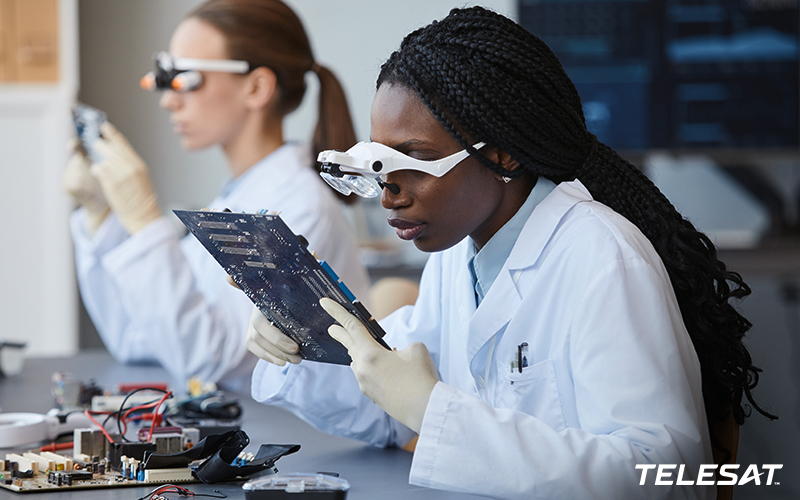On February 11, 2023, we celebrate International Day of Women & Girls in Science. This marks the 8th anniversary of this global movement, which was originally established during a World Women’s Health and Development Forum held at the United Nations headquarters. This year’s theme is: Innovate. Demonstrate. Elevate. Advance. Sustain (IDEAS).
There remains an urgent need to invest in and nurture the education of individuals who identify as female in science, technology, engineering and math (STEM) fields. According to the United Nations:
- Women typically receive smaller research grants than men
- Only 22% of professionals involved in emerging technologies, such as artificial intelligence, are women
- Despite a shortage of skills in most of the technological fields driving the Fourth Industrial Revolution, women still account for only 28% of engineering graduates and 40% of graduates in computer science and informatics.
Furthermore, the odds of a Canadian girl earning a PhD in sciences or engineering is just one in 225, according to research conducted by the Natural Sciences and Engineering Research Council of Canada. The likelihood for boys to do the same is one in 117.
“Although enrolment by women in university education has increased in Canada over the last decade, the proportion of women students in the various STEM fields has not seen substantial change,” the report stated.
There are multiple reasons why diversity is important. Among the most cited benefits is increased productivity due to having a balanced focus on team input and feedback. Some studies have found that gender diversity increases a business’s performance, such as helping them achieve improved valuation and revenue potential.
Other benefits include: greater opportunities for innovation and creativity; improved decision-making with the consideration of varied experiences; employee retention and overall work satisfaction; reduction in biases or preconceptions; and improved organizational brand/reputation. Also, when organizations are inclusive, they more accurately reflect the true nature of society — enabling them to better solve problems that affect all citizens.
We see these factors play out in the space industry and right here within the “four walls” of Telesat. As our teams work with different countries and global partners, our understanding of issues increases. We become better equipped to find solutions, explore new possibilities, and learn from each other.
That’s why we continue to invest in diversity. In fact, Telesat will soon launch its third-annual National Women in STEM scholarship program, in which students will be provided funding to continue their pursuit of a degree in science, technology, math or engineering. The goal is to inspire and prepare more women to seek careers in these fields.
We encourage everyone to play a role in promoting STEM studies among girls and women – regardless of whether you work in a related field. Here are a few ideas:
- Read more about the International Day of Women & Girls in Science.
- Read more about the gender gap in STEM in Canada.
- Support programs that invest in empowering girls and women to pursue STEM studies.
- Regardless of your gender, if you work in a STEM-related job, be a good role model for girls and young women. Mentor young women and talk about the career possibilities and benefits of these fields.
- Does your local school or community have a girls-only coding, robotics, or artificial intelligence/machine learning program? If not, start one yourself or donate funds toward launching a program.



